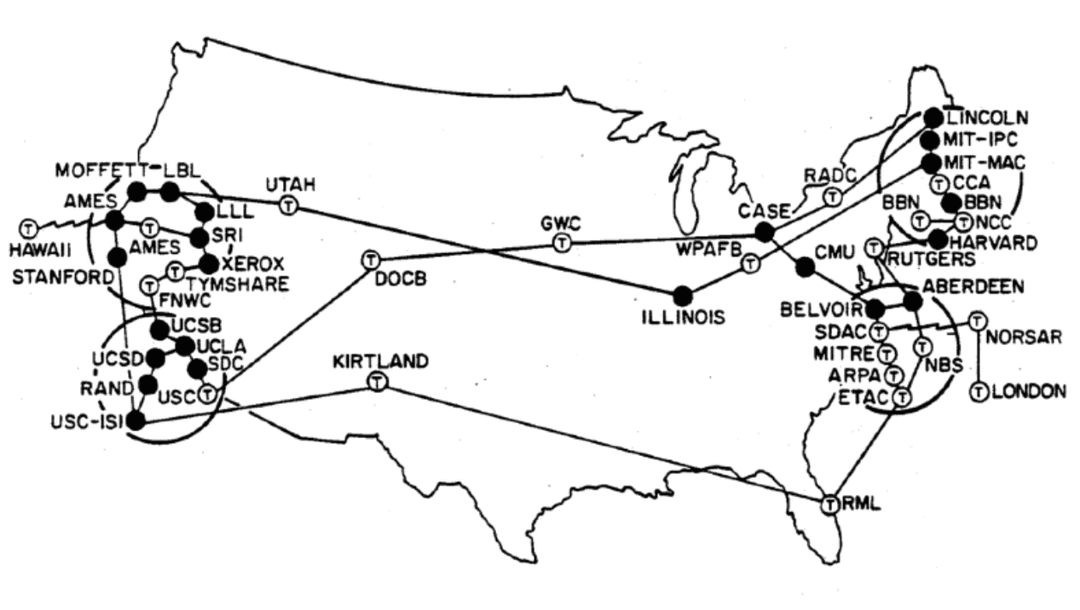

Our Technology
Ushering in a new era of internet connectivity
In a world where our devices are more powerful than ever, Netcore is pioneering a new approach to internet architecture. By leveraging modern Byzantine fault-tolerant consensus protocols, Netcore enables the potential for secure, direct connections between devices without the need for intermediary servers. This innovative technology aims to align the capabilities of today's hardware with a cutting-edge infrastructure, paving the way for more efficient, scalable, and secure communication across the globe.
The Challenge
Despite the exponential advancements in computing power and memory, the internet's core protocols have remained largely unchanged since the ARPANET era. These protocols were originally designed for centralized servers and less capable machines, creating bottlenecks and security vulnerabilities in our modern, mobile-first world.
To illustrate this mismatch, consider the contrast between past and present devices. The PDP-11, a popular minicomputer from 1970, filled an entire room and performed around 500,000 instructions per second with up to 56 KB of memory. In stark contrast, modern smartphones like the iPhone 14 execute billions of instructions per second and feature up to 16 GB of RAM, making them millions of times more powerful.


Netcore's Solution
Netcore aims to address these challenges by consolidating identities and encryption into a trustworthy, lightweight architecture. This design seeks to empower devices to establish secure, authenticated connections directly, eliminating the need for centralized servers. By doing so, Netcore offers the potential to reduce latency, enhance scalability, and significantly improve security—all while simplifying system architecture.
Moreover, Netcore is working to revitalize time-tested protocols like NFS (Network File System) and FTP (File Transfer Protocol) by equipping them with modern security measures. This initiative aims to allow these protocols to operate efficiently in today's network environments, unlocking new potentials for data transfer and resource sharing.
Use Cases and Practical Applications
Netcore's potential to create secure, direct connections between devices could unlock a wide array of applications for today's powerful mobile technology:

IoT Devices
Netcore could enable IoT devices, such as security cameras, to stream video securely and directly to a user's device. This would bypass centralized servers that often introduce additional costs, scalability issues, and security risks.

Remote File Manipulation
With Netcore, protocols like NFS and SMB could potentially function as if devices are on the same local network. This would allow for seamless manipulation of large files—like videos or medical images—without the delays that come with copying entire files.

Scalable Web Applications
Traditional web apps often struggle with scalability due to reliance on central servers. Netcore unlocks the potential to eliminate this bottleneck by utilizing client resources for backend functionality, improving performance and reducing infrastructure costs.

Mobile Device Connectivity
Netcore's potential for rapid state updating—measured in seconds rather than hours like DNS—could allow mobile devices to maintain secure connections even as they move or change IP addresses. This is crucial for real-time applications such as mobile gaming, communication apps, or navigation systems.
Let's build the future of the decentralized web
Netcore represents a fundamental shift in internet architecture, aligning the capabilities of modern devices with an infrastructure designed for today's needs. As Netcore users develop and enhance Netcore after its launch, its potential to revolutionize internet connectivity will only grow, enabling new possibilities for secure, scalable, and efficient communication worldwide.
Build with Netcore